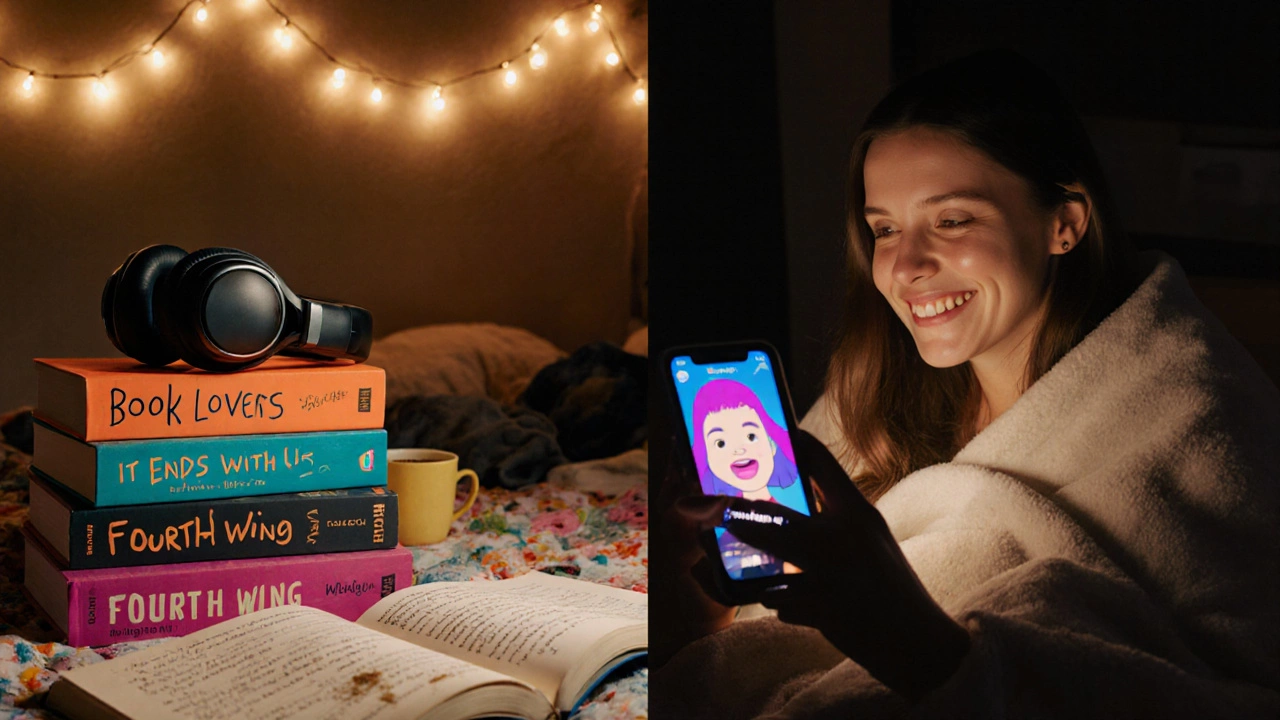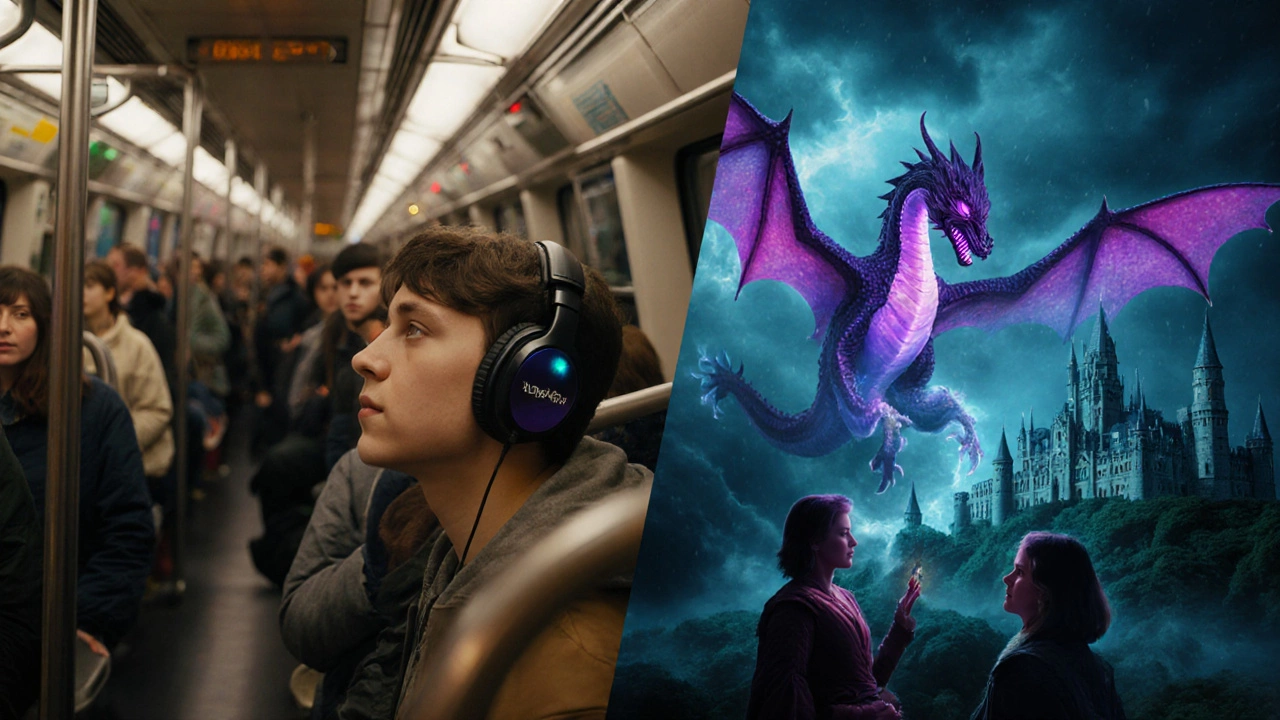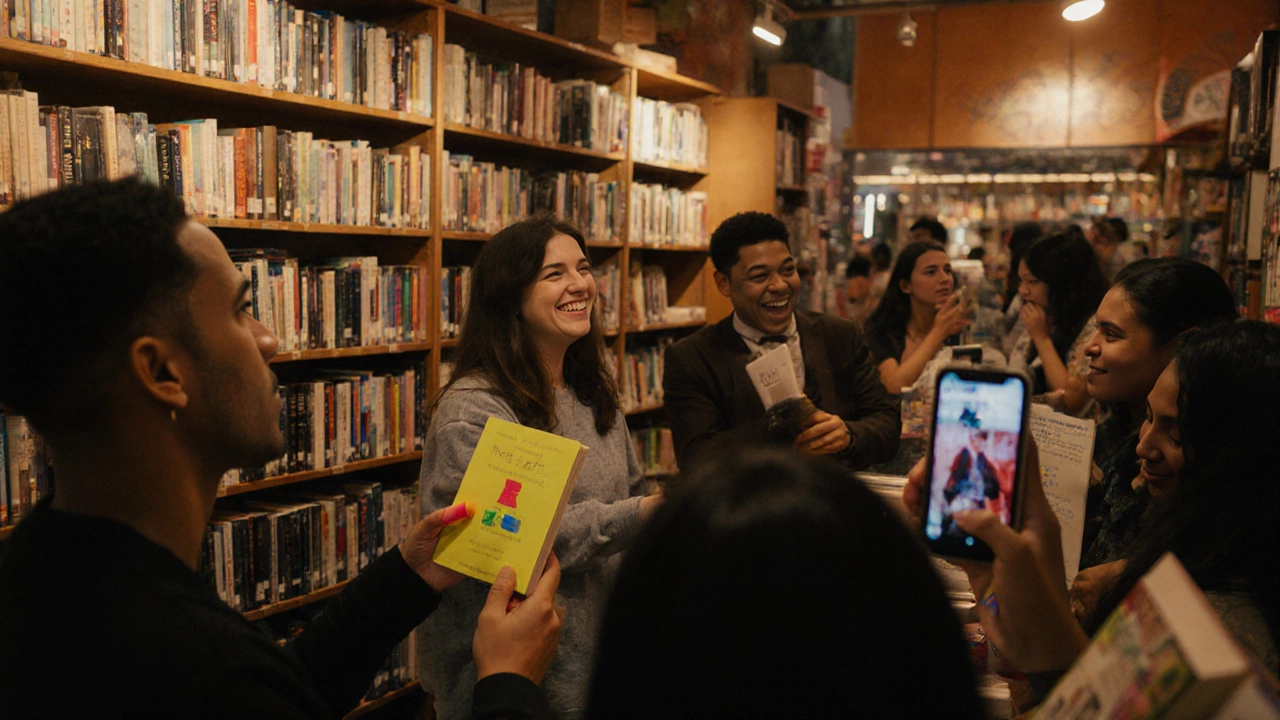What Is Gen Z Obsessed With? The Reading Trends Shaping Their Book Choices
 Oct, 27 2025
Oct, 27 2025
Gen Z Reading Preferences Quiz
How do you prefer to read books?
What type of stories resonate most with you?
How do you discover new books?
What makes you avoid a book?
What do you value most in a book?
Gen Z isn’t just reading books-they’re reshaping what books even mean. While older generations might think of reading as a quiet, solitary act, Gen Z’s relationship with books is loud, visual, and deeply social. They don’t just pick up a novel; they join a movement. And if you’re wondering what’s actually on their nightstands, it’s not what you’d expect from a generation labeled as ‘digitally distracted.’
Books That Feel Like TikTok Videos
Gen Z doesn’t want slow burns. They want momentum. Books like Book Lovers by Emily Henry and It Ends with Us by Colleen Hoover aren’t just popular-they’re viral. These stories move fast, pack emotional punches, and end with cliffhangers that beg for group chats. It’s no coincidence that many of these titles have cover designs that look like Instagram Reels thumbnails: bold fonts, saturated colors, and a single striking image. Publishers know this. They’re now designing covers with scroll-stopping power, not just shelf appeal.
And it’s not just romance. Dark academia is having a moment, but not the kind with tweed jackets and dusty libraries. Think The Seven Husbands of Evelyn Hugo by Taylor Jenkins Reid-glamorous, messy, and dripping with secrets. Or A Court of Thorns and Roses by Sarah J. Maas, where fantasy isn’t about saving kingdoms-it’s about surviving toxic relationships and finding your voice. These aren’t escape novels. They’re mirror novels. Gen Z reads to see themselves, flaws and all.
They’re Reading With Their Ears
Audio books aren’t a side hustle for Gen Z-they’re the main event. Nearly 60% of Gen Z readers listen to at least one book a month, according to a 2024 survey by the Publishers Association. Why? Because their time is fragmented. They’re commuting, working part-time jobs, scrolling through TikTok, and still managing school or college. Audio books let them consume stories while doing everything else.
But it’s not just convenience. The performance matters. Gen Z chooses books based on the narrator. A poorly voiced character can kill a whole story. A well-delivered performance? That turns a book into a cult favorite. Narrators like Rebecca Lowman and Neil Gaiman have fanbases bigger than some indie bands. And platforms like Audible and Libby are now pushing audio-first releases-books designed to be heard, not just read.
BookTok Is the New Book Club
If you want to know what Gen Z is reading, don’t ask a librarian. Ask BookTok. That’s the TikTok community where 15-second clips turn obscure titles into bestsellers. In 2023, a single BookTok video for Fourth Wing by Rebecca Yarros pushed it to #1 on Amazon. Within weeks, the publisher printed 2 million extra copies. That’s not marketing. That’s peer-to-peer hype.
BookTok doesn’t review books. It *experiences* them. Users don’t say, “This book has great world-building.” They say, “I cried on the bus because the dragon died.” They show their coffee stains, their highlighter marks, their tear-soaked pages. It’s raw. It’s real. And it’s how Gen Z decides what’s worth their time. A book doesn’t need a Pulitzer. It needs a moment.

They’re Rewriting the Rules of Genre
Gen Z doesn’t care about genre boundaries. A book can be fantasy, queer romance, and mental health memoir all at once-and that’s a feature, not a bug. Titles like They Both Die at the End by Adam Silvera or Red, White & Royal Blue by Casey McQuiston blur lines so completely that traditional categories don’t fit anymore. Publishers are dropping rigid labels. Bookstores are rearranging shelves. “LGBTQ+ Fiction” is no longer a niche section-it’s everywhere.
And it’s not just identity. Gen Z reads for truth, not tropes. They’re tired of perfect heroes and tidy endings. They want characters who struggle with anxiety, who skip therapy because they can’t afford it, who don’t magically fix their trauma by falling in love. The most shared books on BookTok aren’t the ones with the most magic. They’re the ones with the most honesty.
Physical Books Are Still Winning
Don’t let the screens fool you. Gen Z still buys physical books-more than any other generation, according to a 2025 report by Nielsen. They’re not buying them to collect. They’re buying them to touch, to annotate, to lend to friends. Bookstores like Waterstones and independent shops like The Bookshop in Bristol are seeing record foot traffic from 18- to 24-year-olds. They’ll spend £18 on a hardcover because it’s a keepsake. They’ll take photos of their shelves and post them with captions like, “This is my mental health survival kit.”
Book clubs are back-but not the quiet, library-style kind. These are pop-up events in cafes, Discord groups with 5,000 members, and Instagram Live discussions that go until 2 a.m. The book is the starting point. The conversation is the point.

What They’re Avoiding
Gen Z isn’t just drawn to certain books-they’re actively rejecting others. They’re done with white savior narratives. They’re tired of male protagonists saving the day while women wait around. They won’t read books that romanticize toxic relationships unless the book is *critiquing* them. And they’ll call out lazy representation faster than a TikTok comment section.
They also avoid books that feel like homework. No more 500-page epics with 12 side characters named after European royalty. They want lean, sharp, emotionally precise storytelling. If a book takes too long to get to the heart of it, they’ll skip to the last chapter. And if it doesn’t land? They’ll leave a one-star review that goes viral.
The Future Is Collaborative
Gen Z isn’t just reading books-they’re co-creating them. Fan fiction is no longer a hidden hobby. It’s a publishing pipeline. Platforms like Wattpad and Royal Road are launching careers. Authors like Cassandra Clare and E.L. James started there. Now, indie publishers are scouting TikTok for fan theories that could become full novels.
And the lines between reader and writer are disappearing. Gen Z doesn’t wait for the next release. They make their own. They write short stories on Instagram. They turn their trauma into poetry. They publish zines on Etsy. Reading isn’t passive anymore. It’s participatory.
If you’re wondering what Gen Z is obsessed with, it’s not just books. It’s connection. It’s authenticity. It’s being seen. And if you want to understand them? Start by listening-not just to what they’re reading, but how, why, and who they’re reading it with.
Why are Gen Z readers drawn to emotional, fast-paced stories?
Gen Z grew up with short-form video and instant feedback. Their attention spans aren’t broken-they’re optimized. Fast-paced, emotionally raw stories match how they experience the world: intense, quick, and deeply personal. Books that deliver a strong feeling in under 300 pages feel more honest than slow, sprawling epics. They want to feel something real, not just be entertained.
Is BookTok really changing what gets published?
Absolutely. In 2024, over 40% of the top 100 bestsellers on Amazon were first pushed into the spotlight by BookTok. Publishers now send advance copies to top BookTok creators before traditional marketing campaigns. Some books are being rewritten based on fan feedback. It’s not just promotion-it’s co-creation. A viral TikTok can turn an unknown debut into a publishing phenomenon in weeks.
Do Gen Z readers prefer audiobooks or physical books?
They use both-but for different reasons. Audiobooks are for multitasking: commuting, working, walking the dog. Physical books are for rituals: reading in bed, writing in the margins, gifting to friends. Many Gen Z readers buy the physical copy after listening to the audiobook. They’re not choosing one over the other-they’re layering their reading experience.
Why are Gen Z readers rejecting traditional genres?
Because genres often come with outdated expectations. Gen Z wants stories that reflect their messy, intersectional lives. A book can be fantasy, queer, and about climate anxiety all at once-and that’s more real than a neatly labeled “Romance” or “Thriller” section. They’re tired of boxes. They want books that break them.
Are Gen Z readers more likely to support diverse authors?
Yes, and they’re voting with their wallets. Books by BIPOC, LGBTQ+, and disabled authors are seeing the biggest sales jumps. Gen Z doesn’t just want representation-they want authorship. They’ll pay more for books written by people who’ve lived the experience. And they’ll call out publishers who tokenize diversity. Authenticity isn’t a buzzword to them-it’s a requirement.